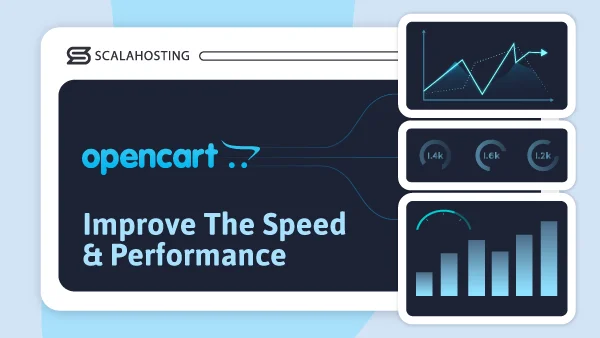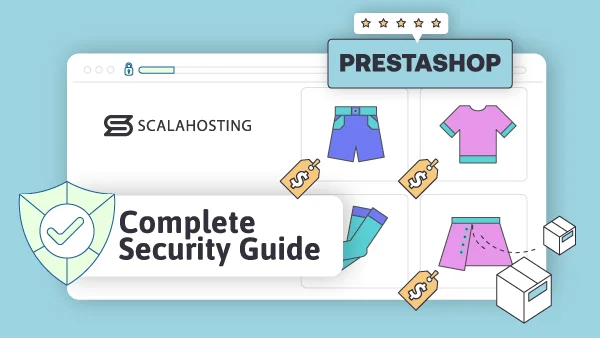Voice Search Optimization in Ecommerce Stores
We have reached a point where getting up and going to a brick-and-mortar store to purchase goods is something we rarely do. If something can be reviewed and purchased online – we will most certainly prioritize this option. There is much less time wasting involved, the variety of goods is much broader, and we can get a ton of information with just a few clicks.
But what if we don’t even need to lift a finger? What if we can just tell our device what we want and get immediate results?
Sign me up for that!
Voice search is one of the hottest trends in ecommerce shopping nowadays, and an increasing number of brands are jumping on that bandwagon.
Our mission today is to better understand voice search—how it works, why it is so popular, and what we need to consider if we want to implement it in our online store.
Introduction to Voice Search Optimization
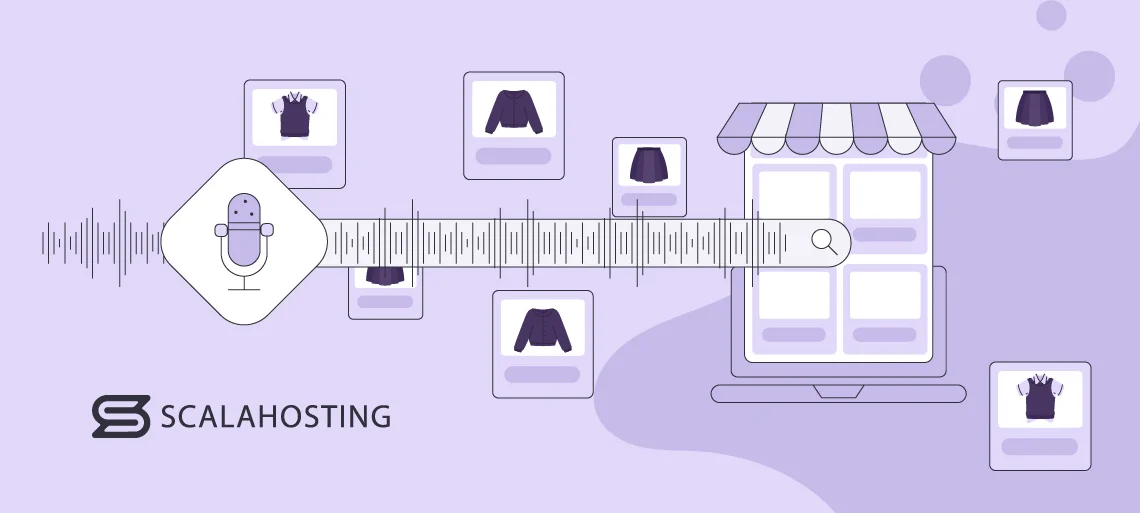
Voice search is the process of using verbal commands to look for information on websites or applications. It can be defined as a type of dialog system that serves as a communication bridge between a human and a computer. This technology is most often based on automatic speech recognition (ASR) and natural language processing (NLP). This allows the device you’re using to not only “hear” the words you’re saying but also understand the language and the intent behind the search.
Popular products based on voice search technology include Apple Siri, Amazon Alexa, and Cortana. However, while we know them as relatively modern solutions, the first steps in this niche were made more than 70 years ago. Scientists at Bell Laboratories first introduced a device that could recognize digits from verbal commands back in 1952. IBM used this as a foundation of their Shoebox in 1961 – a computer that could calculate mathematical functions from speech alone.
Today, voice search is already a multimillion-dollar industry with huge applications in our everyday lives:
- Almost 50% of US consumers conduct voice searches on a daily basis.
- Voice search assistants are able to answer 93.7% of searches with high accuracy.
- The most purchased products from voice searches are in the Health&Beauty, Consumer Electronics, and Household Supplies niches.
- Voice assistants crawl mobile sites to find query answers, making mobile website performance optimization more important than ever.
Benefits of Voice Search for Ecommerce
The great thing about implementing voice search functionalities in ecommerce websites is they can bring significant benefits to both customers and store owners. The advantages include:
- Accessibility – far too many websites still neglect users with disabilities. There are various reasons why a person might find it difficult (even impossible) to use a keyboard and computer mouse. Being able to shop online by only using voice commands is a wonderful way to increase inclusivity and cater to an even bigger client base.
- Smooth Navigation – big and small ecommerce companies alike are investing millions of dollars to make their websites and apps more user-friendly and functional. Incorporating voice search can bring many benefits in that aspect – from a simplified method to make your products available to a broad audience to allowing clients to purchase them while on the go or multitasking.
- Brand Visibility – by making your online shop more accessible and user-friendly, you are practically giving your brand a huge promotion boost. Companies that utilize voice search are still too few, so such solutions easily make a great impression and help with word-of-mouth marketing.
- Conversational Approach – the NLP algorithms behind voice queries allow the user to find things by asking just how they would in a standard conversation. While Google has been working hard to implement this in written searches as well, there is still some way to go to perfect this.
- SEO and Mobile SEO Optimization – voice search functionalities have a huge potential to help with SEO as well, especially if your audience is predominantly using mobile phones. This rings especially true when you are looking to improve local search results, as many users are using voice assistants to find “xxx near me.”
- Time-savings – among other things, voice searches are a real time-saver – you don’t need to turn on computers, open laptops, type URLs, or click around different pages. Not to mention that the actual verbal searches are about 3.7 times faster than written ones.
- Analytics – one great benefit for ecommerce store owners is the heaps of analytical data that come with voice searches. You gain a better understanding of not only what your clients are looking for but exactly HOW they are trying to find it online. This will allow you to better tailor products to different customer groups.
Voice Search Challenges
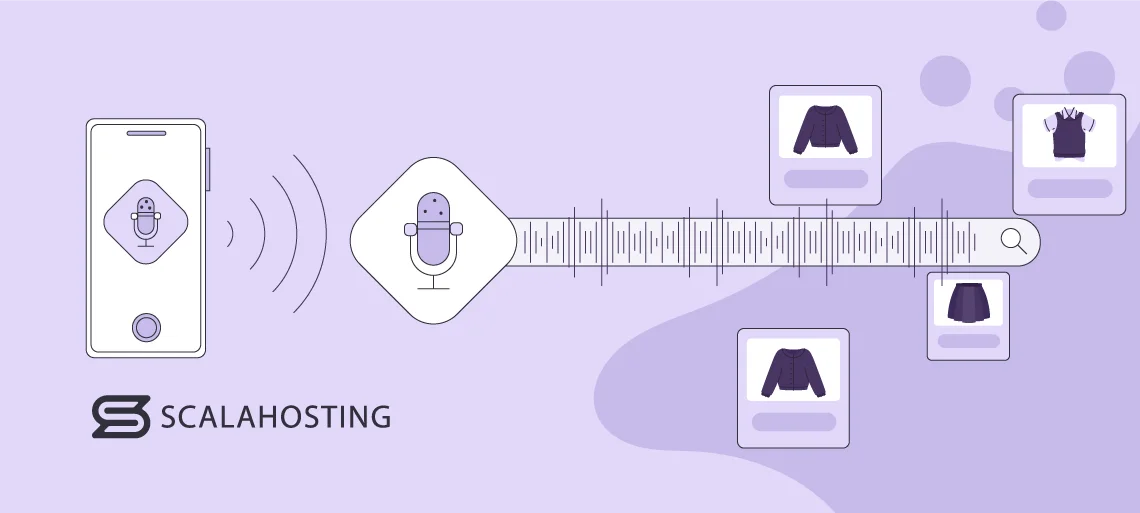
It’s not all fun and games in the world of voice search. The technology would probably be much more common in ecommerce today if it weren’t for a few understandable concerns:
- Privacy Issues – undoubtedly the biggest challenge for ecommerce store owners. Even though user information is freely passed around by data brokers, online customers still have big concerns about how that data is being utilized. That became even more apparent during COVID times when the usage of home voice assistants actually dropped. The majority of users have no idea what the big companies behind those products are collecting, so transparency and clear regulations would be the prime issues that every online shop with voice functionality would have to deal with.
- Accuracy – voice search solutions utilize various algorithms that analyze accents and dialects (more on that below), but their accuracy still leaves much to be desired. Even simpler queries can easily be misinterpreted if you don’t speak clearly enough (think of cases where you request suggestions about new shoes and get results concerning shoe news). Outside factors still play a major role in terms of accuracy, such as microphone quality, external noises, and query complexity.
- Voice Search on Desktop – voice searches are still conducted predominantly on smartphones, hence why the optimization of the technology still primarily targets mobile users. But if we want to maximize the success of our online store, we have to improve the experience for people on a desktop machine. Cortana and Siri are taking big steps in that direction for Windows and Apple users, respectively, but there is still a long way to go until they get to the same level as their mobile counterparts.
Understanding Voice Search Algorithms

Let’s now have a close look at the algorithms involved in voice searches. Here are some of the most prevalent:
- Natural Language Processing (NLP) – this is one of the pillars of machine learning that is heavily utilized by Google and other search engine solutions. NLP models give us a better understanding of the context behind a search query and help computers better interpret human speech. This technology has numerous implementations for online business – from gathering and analyzing large datasets to classifying written and verbal speech, all the way to “teaching” chatbots how to properly communicate with real clients.
- Hidden Markov Model (HMM) – even people who speak the same language often use different dialects, accents, and pronunciations. The HMM model analyzes speech structures and phonetical patterns to help voice assistants deal with our local lingual distinctions and bring more accurate search results.
- Dynamic Time Wrapping (DTW) – just as with various pronunciations, people speak at different speeds. The DTW algorithms compare how the same sentence should be interpreted when users process it slowly or faster, thus changing the length of the query as well.
- Artificial Neural Networks (ANN) – the computer “brain” cannot function like the human one, which is why it employs neural networks to better understand our intent when speaking. ANN is one of the cornerstones of voice assistants, using deep learning to not only “hear” what we’re saying but also catch the emotion behind our words.
How to Optimize Your Ecommerce Website for Voice Search
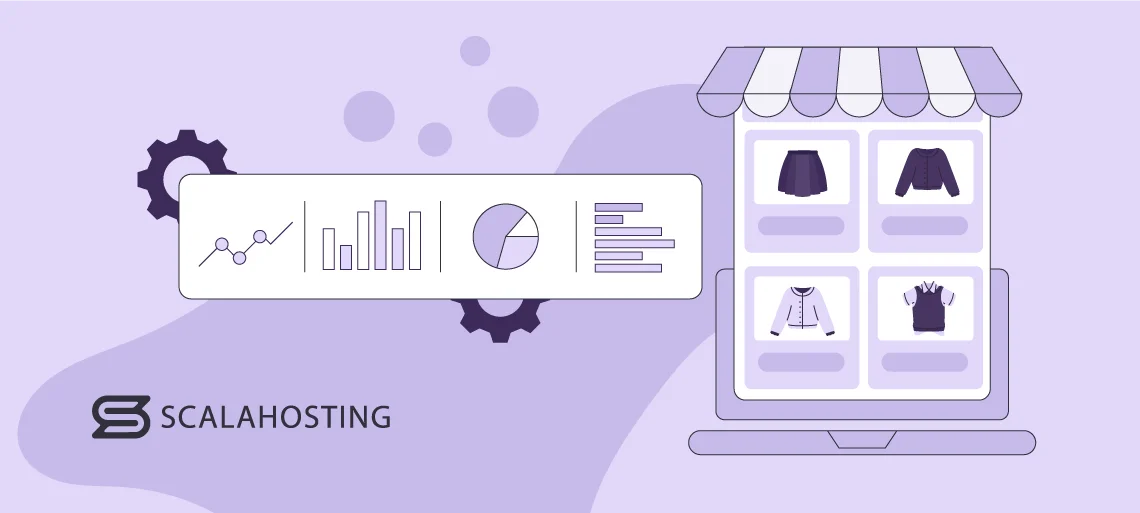
Getting down to the nitty-gritty, let’s now shift our attention to practicality. We already understand the importance of voice search for our ecommerce shop, but how exactly can we make our website more user-friendly for customers who want to find our products via verbal commands?
There are more than a few ways, actually.
Optimizing Content for Voice Search
Normally, when conducting text-based searches, we aim to simplify our query so the search engine understands us (and we spare some time). We would type our questions like “plumber New York” or “Eiffel Tower height,” and Google will still bring us relevant information in most cases.
That’s different from how we usually speak, though.
When optimizing content for voice searches, we need to focus more on long-tail keywords and phrases. For example, “How high is the Eiffel Tower?” Or “What is the closest music store near me?” Your product descriptions should be able to reflect our tendency to ask full-blown questions when voice searching.
This is where featured snippets come into play as well.
Google’s answer boxes (featured snippets) are slowly but surely occupying the top of our search results, so getting there will give your online store an immense traffic boost. Make sure your content not only answers popular user questions but also does that clearly and concisely. Bulleted/numbered lists also do a great job, as the search engine can extract the exact bullet that helps with the query. Charts, graphs, tables – any kind of visual aid can help you rank better.
IMPORTANT: Keep in mind that snippets and visual aids help predominantly when the voice search is conducted via smartphone or desktop. Voice assistants like Alexa and Google Echo do not display results, making such helpers obsolete.
At the end of the day, voice searches closely resemble our everyday conversations. So, keep it simple, think of how you would search for your brand/products, and avoid corporate buzzwords and obscure jargon.
Schema Markup
Simply put, schema markup is the language that search engines utilize to understand the content of our web pages. As such, it is detrimental to our SEO efforts, regardless of whether we use voice search or not. Without properly structured data, search engine crawlers will have a much harder time understanding what they’re seeing and the context around it. You can easily mark elements like:
- Article
- FAQ
- Logo
- Product
- Review
- Image
- Video
And many more.
When creating our schema markup, it’s essential to follow strict guidelines and logic, most of which can be found on the Schema.org website. For voice search specifically, you want your microdata to be clear, informative, and with a good focus on keywording.
Do not worry if you are not technically savvy enough – there are online validators where you can always check if your structured data is up to the standards and will be correctly read by the search crawlers.
Mobile-First and Responsive Design
Mobile phones are not only becoming the prevalent way of browsing online – they are a complete market dominator when it comes to voice searches. As such, we have to pay special attention to the responsive design of our ecommerce store, so it appears and functions perfectly on all devices and screen sizes.
Google switched to mobile-first indexing a few years ago, so a good number of site-building apps, like WordPress and Joomla, have already focused on creating responsive templates and add-ons. Still, if you’re using custom code for your ecommerce projects, make sure it’s entirely mobile-friendly.
When optimizing your pages for better performance, keep in mind that you should cover browsing through a mobile phone or tablet. This includes text fonts, images, buttons, and the overall site structure. Avoid pop-ups as much as possible, as they needlessly disrupt the shopping experience and slow down your content loading.
Local Search Optimization for Voice
Local SEO is the king when we talk about voice search optimizations. According to a BrightLocal research, over 40% of users search for local businesses on a daily basis, while a whopping 76% perform such voice queries weekly. You don’t want to miss this opportunity, so make sure your company is properly represented in your geolocation area(s).
Start with your Google Business Profile. Fill in all relevant data and verify your business as quickly as possible. Don’t limit yourself to just this profile – include your company in any relevant local business listing you can find.
When optimizing the keywords for your content, consider not just the general options but also what’s popular in your area. “Near me” searches are quite popular in voice SEO, so those are among the first you want to target.
Consider NAP citations (name, address, phone). You can obtain them in a number of ways, including adding your business to local directories and listings, creating local events, getting mentions from media sources in your region, and more.
Naturally, reviews from existing clients are highly recommended. They will boost your voice SEO visibility and encourage potential customers to take a chance with your company.
FAQ Section
Frequently Asked Questions (FAQ) is an excellent way to incorporate conversational and long-tail keywords into your content. Voice searches are heavily based on questions, and answering them is the exact purpose of an FAQ section. What’s more, because of the nature and structure of this question/answer content, it is often picked up by search engine crawlers for featured snippets. This way, you maximize your chances to appear on top of the search results.
Don’t limit yourself to an FAQ section on your main ecommerce pages. This option is often utilized in blog posts, longer articles, and service pages as well.
Testing and Monitoring Voice Search
Testing the effectiveness of your voice search optimizations is quite easy. All you need is a few different devices equipped with the major operating systems, in this case Android and iOS. After that, interact with the voice recognition apps just as you would as a consumer – ask questions, try to find your business information, and search for your products.
Keep a close eye on the software’s accuracy—does it understand your queries during everyday speech, or do you have to put extra effort into speaking slower and clearer? See how well the device “understands” you and how fast you get the appropriate results.
Try testing the voice recognition with a variety of accents and pronunciations and outline where potential issues may arise.
Monitoring your ecommerce voice search efficiency is not a one-and-done process – you have to regularly check the voice functionalities and refine your online shop accordingly.
Hosting Considerations for Voice Search Optimization
As you can imagine, voice search functionalities require their fair share of resources, so you must ensure your web hosting service is up for the challenge. Here are some of the main focal points you need to consider when deciding to go that route with your ecommerce shop:
- Scalability: Voice queries put an additional strain on your web server, but the actual amount strongly depends on the number of people using the service. As that metric is hard to predict, your best bet would be to go for a package that is flexible enough to endure traffic spikes without any downtimes or service interruptions. On the other hand, you don’t want to overpay for system resources you’re not using in times when your site visitors don’t conduct many voice searches. This is why cloud VPS hosting is an excellent choice, securing the needed scalability for the job. Cloud services allow you to add and remove CPU and RAM as the need arises without having to upgrade/downgrade your entire account. Moreover, the setup of interconnected servers guarantees that there is practically no limit to the resources you can add.
- Low Latency: Fast ecommerce websites are the norm now, regardless of whether you provide voice search or not. Make sure your hosting provider can support a configuration that is optimized for speed. Server options like LiteSpeed and OpenLiteSpeed are wonderful choices in that aspect, allowing you to minimize your page loading times with little to no effort. Other good helpers would be utilizing a CDN, minifying your CSS/JS files, compressing images, etc.
- Data Storage: Just as with your processing power and operating memory, make sure you have enough space to accommodate voice search on your ecommerce site. Don’t just aim for having sufficient disk space – go for a hosting plan that gives you enough overhead. That’s especially true if you plan to host a chatbot, as they need to store user data, conversation history, and much more.
ScalaHosting – The Smart Ecommerce Choice

Knowing the basics of a strong hosting foundation, here is what ScalaHosting can do for you and your online shop.
For starters, our cloud VPS plans are fully scalable, meaning you can add and remove system resources at any time and without delay. Your control panel contains such functionality that allows you to get more RAM or CPU with a simple push of a button.
Speaking of control panels, this is one aspect that makes ScalaHosting truly unique. We offer SPanel, a self-developed hosting management solution packed with features and modules that let you handle domains, emails, site files, databases, security options, and many more with zero effort. SPanel is regularly updated with new functionalities, many of which are suggested and voted on by our most important asset – the users. What’s more, working with Scala means you are not paying a dime for this robust control panel – it comes for free with every VPS plan.
In terms of speed, we’ve got your online shop fully covered. Our packages come with ultra-fast SSD disk space, and a CDN can be easily integrated through SPanel. We support both LiteSpeed and OpenLiteSpeed, so even if you incorporate voice search – your page loading times will remain as minimal as ever.
Don’t think we’ve forgotten about security – one of the cornerstones of any ecommerce project. Our servers are PCI-compliant and equipped with impenetrable network firewalls, as well as an option to integrate your own WAF. SSL certificates are not only available and free of charge – we will automatically apply them to your website once you start an account with us. As you would certainly need a data backup solution – we offer a unique option that allows you to keep multiple offsite copies of your website and restore them quickly with a simple mouse click.
The best thing is that you’re never alone in your ecommerce journey – our team of hosting experts is available 24/7 via live chat and ticket, ready to help with any questions or potential hurdles you might be having along the way. In fact, we encourage you to contact ScalaHosting anytime, share some information about your project, and have them suggest the best plan for your online shop.
Conclusion
Voice search functionalities might still look like a thing from the future, but you can easily prepare for them in the present. Let your online store become more accessible today, and consider incorporating speech recognition software.
Sure, it might not sound like the easiest job, especially if you want to do it right. You have to consider the looming challenges in terms of privacy and accuracy, as well as finding the right hosting partner for such a complex project. But a little effort goes a long way, and you have an excellent opportunity to offer a unique selling point that will give you a much-needed headstart in front of your competition.
This article should give you a good idea of how to optimize your online shop for voice search. For everything else related to your hosting service, the ScalaHosting Team will be glad to lend a helping hand!
FAQ
Q: What is voice search in ecommerce?
A: Voice search in ecommerce encompasses the process of verbally searching and purchasing products online instead of using keyboard input. By utilizing natural language processing (NLP), voice search solutions allow customers to make refined searches with zero effort and minimum involvement.
Q: What are the most popular voice assistants in ecommerce?
A: Voice commerce can be utilized by various devices already established in our everyday lives. Naturally, the biggest industry giants have the upper hand, as their voice technology products have been around for years. Solutions that are already widely used in voice commerce include Amazon Alexa, Google Assistant, and Apple Siri.
Q: What companies use voice search in ecommerce?
A: Many ecommerce brands are already dipping their toes in voice solutions, both in retail and wholesale. The automotive industry and home device manufacturers were among the earliest adopters of the voice search technology, with many others closely following the emerging trend. Today, companies like Walgreens, Estee Lauder, Domino’s, and Burger King actively benefit from voice search and widely offer it to their customer base.

